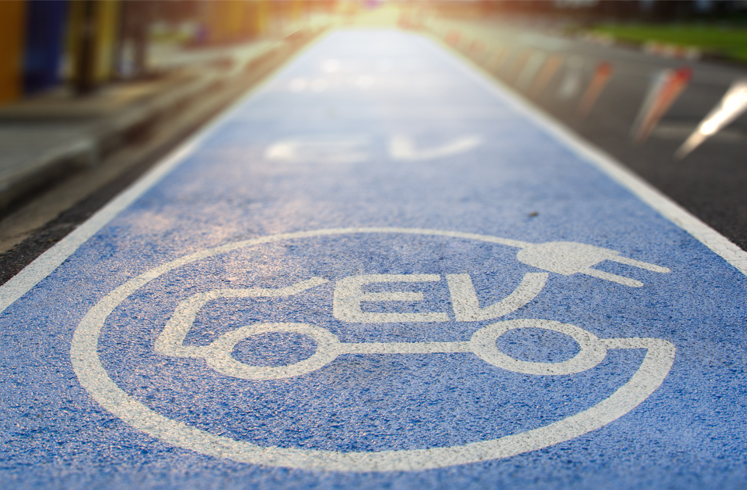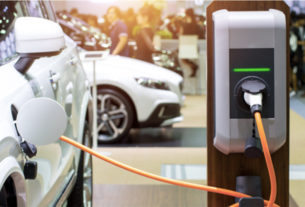Preference led by Gen Z and millennials; top 2 reasons include cost efficiency and environmental sustainability. 88% reveal they would use office transportation if sustainable in nature

COVID-19 has been a trigger for many around the world with regard to their habits and conscious choices have been made towards living a sustainable lifestyle, particularly for those working from home. With the lockdown extending for almost a year, the environment has had the time to bounce back while people have had the opportunity to rethink the way they can contribute to a cleaner environment and corporates have had to realign their sustainability goals and give back to society in a more meaningful way. Lithium Urban Technologies, a corporate sustainable mobility solutions provider, administered a survey among the corporate community in India with the aim to assess their preference for sustainable mobility and electric vehicles in light of the pandemic. Over 3500 respondents shared their views from 7 cities including Delhi, Mumbai, Bangalore, Chennai, Kolkata, Pune, Jaipur, and Hyderabad.
Commenting on the survey insights, Sanjay Krishnan, Founder, Lithium Urban Technologies said, “It is safe to conclude that sustainability has hit the mainstream with a clear behavioural change seen in a corporate consumer since the onset of the pandemic and the lockdown. The insights from this survey are indicative of the fact that the younger generation will be the key stakeholders in influencing the general sentiments among their peers and older generations towards sustainable mobility as a long-term solution and investment. Moreover, an increased interest towards adoption of EVs clearly implies that pandemic has strengthened the belief of being environmentally conscious while keeping in mind cost effectiveness.”
Lithium Urban Technologies owns the largest fleet of EVs in the world outside of China. It is India’s first zero emission service, with its own fleets of Electric Vehicles (EVs) and associated charging infrastructure, backed by a strong technology platform that involves telematics, fleet management systems, scheduling, rostering and analytics-based optimisation; and trained and certified drivers. Lithium also owns and operates India’s largest EV charging network spread across 7 cities in India. As a socially conscious company, Lithium is the only transportation company to have received the ISO 26000 guidance on social responsibility. Having covered almost 100 million kilometres to date it has abated about 20,000 MT of Co2e. Lithium’s institutional investors include LGT Capital and International Finance Corp (a World Bank Group Co). Lithium is a recipient of several national and global awards including the prestigious the Financial Times /IFC Transformational Awards 2019 in London.
SURVEY HIGHLIGHTS
Improved outlook towards sustainability
A sense of revelation was highlighted with regard to vehicles being off the road during the lockdown – 80% of respondents observed a drastic dip in pollution levels, and 52% realized that most travel was unnecessary as their work carried on without any disruption.
Having taken the opportunity to increase self-awareness towards sustainability, a significant 69% of respondents feel that they have increased their efforts to adopt a more sustainable way of living since the onset of the pandemic. Amongst this, 86% of people of age 55+ top the list. Interestingly, those residing in Mumbai (85%) and Bangalore (68%) have a higher claim towards living a more sustainable lifestyle, compared to those residing in Delhi (62%) and Chennai (50%).
Though most of the respondents had an improved outlook towards sustainability, 41% of respondents stressed upon the fact that there is a need to adopt a more sustainable lifestyle going forward.
Awareness of company-led sustainability efforts
When asked about the respondents’ companies’ policies on sustainability, 55% of them claim that their company has sustainability-related goals, while 19% of respondents are not aware about their organisations’ commitment to sustainability. Amongst them, a higher percentage of those working in medium to large enterprises believe that their company is more conscious about the environment (>75%), than those working in smaller enterprises (<52%)
Preference of sustainable mobility services at an all-time high
While only 17% of respondents claim that their office provides an option for sustainable mobility, Bangalore was seen witnessing the highest provision of sustainable mobility by offices which is much higher than the national average. The insights also stress upon the fact that there is a willingness from the respondents to shift towards sustainable mobility solutions as a whopping 88% believe they would be more likely to opt for office transportation if it were in an electric vehicle format.
Massive shift from public transport to own vehicles in the post-COVID world
COVID-19 has caused a massive shift in the daily commuting preferences – from 44% of respondents using public transport and 36% using their own vehicle to commute to and from work prior to the pandemic, to only 15% willing to use public transport and 65% willing to use their own vehicle in the post COVID world. A significant change is seen among Gen Z respondents with only 50% of them sticking to public transport as compared to the pre COVID era. City-wise, Delhi retains the highest percentage of residents who wish to use their own vehicle which stands at a whopping 75%. On the other hand, Mumbai tops the charts in the usage of public transport with increased willingness to use shared vehicles or carpools.
Saying yes to green mobility
Overall there is an increasing preference for electric vehicles especially amongst the younger generations with close to 80% of respondents having shown willingness to purchase an electric vehicle with higher preference being from the male respondents as compared to the female respondents with cost saving and environmental sustainability being the top reasons for their purchase. On the other hand, it is important to note that the reason for 20% of respondents who do not wish to purchase an electric vehicle is the lack of proper supporting infrastructure in our country, particularly in the form of charging stations.





